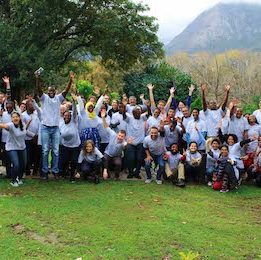By Georgina Cundill Kemp, Senior Program Officer, International Development Research Centre (IDRC)
From academic scholarships to training courses, and from exchange visits to peer-to-peer learning opportunities, the Adaptation at Scale in Semi-Arid Regions (ASSAR) program invested deeply in building the next generation of climate change leaders.
A key ingredient in ASSAR’s success was the innovative, yet sometimes invisible, investment in long term relationship building through learning events such as their annual meetings. The connections forged during these learning events paved the way for younger project members to nurture the relationships that made mentorship and peer-to-peer learning possible later.
The learning events were key to raising awareness about the skills gaps within the project, and sources of knowledge within the project too. Out of these events emerged several proposals for capacity building – either in the form of requests for support, or in the form of offers by more experienced project members to give training or mentorship opportunities to others.
The fact that ASSAR had dedicated funds intended to enable the project to respond to such opportunities was a testament to foresight and adaptive decision making, both key to a successful project.
In the end, ASSAR’s success in terms of capacity building speaks for itself. The numbers of young leaders who have been supported is impressive, as are their personal testimonies of the importance of the capacity building opportunities offered to them through this project.
Hopefully the relationships forged during this project will persist, and this new generation of leaders will make a difference in the lives of those most vulnerable to climate change.
First published on ProSus Magazine, June 2019
Photo: ASSAR Team members at the 2018 Annual Meeting. Copyright: Nick Reay



